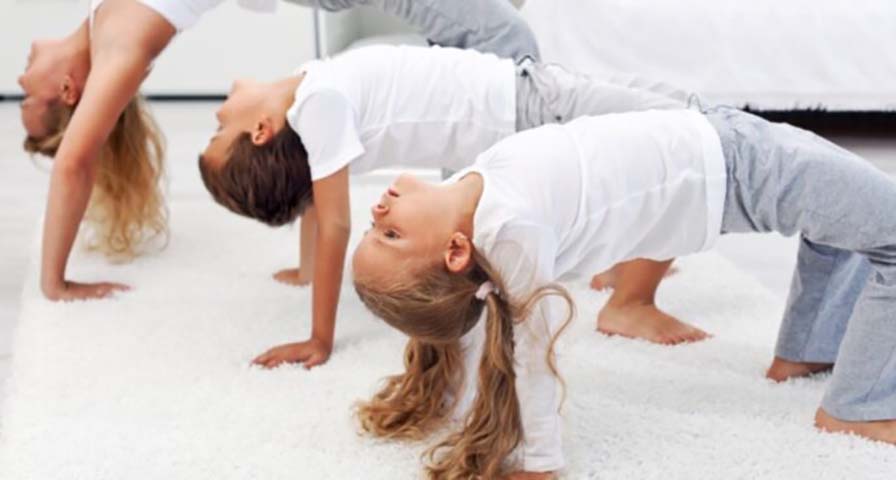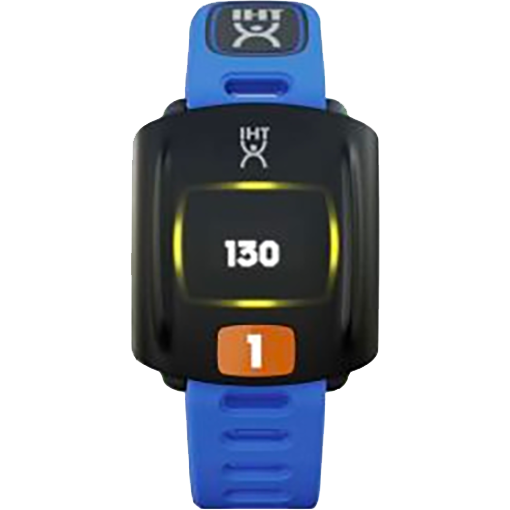Originally published Oct. 19, 2020 by Along the Boards.
By Lana Vrz
When it comes to maintaining sound fitness levels, exercise is the key.
Not only does it help keep your weight in check but it has many other benefits. Regular physical activity goes a long way in developing a sound mind that makes learning new things easy. The sooner you develop a habit of exercising, the better it is for the progress of your mental health. Therefore, it becomes crucial that your child gets to exercise so that he or she can excel at school, train well and become an asset to society.
The need for kids to remain active
 Busy schedules at schools and learning centers, together with its frequent assignments at home can make your child stuck in a groove that’s not always easy to mend. Lack of exercise can increase the risk of lethargy, child obesity and other cognitive challenges. Compared to those who are inactive, physically active kids and youth have higher levels of fitness, lower body fat, and stronger bones and muscles. It is thus important that you provide an environment to your kids that encourage exercise so that you make things easier for them to learn and achieve at many levels.
Busy schedules at schools and learning centers, together with its frequent assignments at home can make your child stuck in a groove that’s not always easy to mend. Lack of exercise can increase the risk of lethargy, child obesity and other cognitive challenges. Compared to those who are inactive, physically active kids and youth have higher levels of fitness, lower body fat, and stronger bones and muscles. It is thus important that you provide an environment to your kids that encourage exercise so that you make things easier for them to learn and achieve at many levels.
Here are a few ways in which exercise improves brain development and ability to focus and learn among kids:
1. Stimulates brain growth
Be it aerobics, yoga or any light physical activity, all help develop and improve the levels of brain-derived neurotrophic factor (BDNF), which is required for brain cell growth. Staying active will also stimulate the process of fresh production of new neurons in the brain or neurogenesis. Regular exercise also helps mobilize the genes that are responsible for enhancing the ability of the brain to change its neural pathway.
This way the child’s brain is developed and the cognitive functions of the kid are sharpened. Hence parents must not prevent their children from playing outdoors with their friends. Including fun elements in outdoor games is an excellent way for them to do exercises that improves their focus toward learning.
2. Boosts mental health
The right kind of exercise, along with playful behavior goes a long way in having a positive impact on your child’s rational thinking and ability. Thus, it becomes a major factor for better learning for children. Kids who are put in physically active classes are able to perform better in academic tasks and creative problem solving. If you want your kids to do well at math and classroom tests, then encourage them to a regular form of activity.
Several recent studies suggest that there are short and long-term benefits of physical activity linked to achievement in the classroom. For instance in one such study 20 minutes of walking session improved the subsequent performance of children in reading, arithmetic and spelling tests. Similarly, a group of children who underwent a 13-week active program saw their mathematics score improve considerably than before.
3. Improves memory power
Physical activity keeps your brain sharp by increasing the oxygen supply to the brain and reducing the risk of illnesses that bring memory loss like diabetes and cardiovascular disease. Regular aerobics that gets your child’s heart pumping sweat glands activated, boosts the size of the hippocampus, the area in the brain that is involved in verbal memory and learning. Research has suggested that the parts of the brain that control thinking and memory are more in people who follow an active lifestyle than in people who don’t. Not just among children but also in adults, exercise plays an important role in fighting memory loss and related illnesses like dementia. For people who live in spaces where open outdoors are hard to get, they try and do simple activities at home. Websites like Total Shape can help you set up the right equipment for your home gym.
4. Improves focus
Physical activity boosts your child’s focus and attention as the brain’s dopamine, norepinephrine, and serotonin levels develop. Exercise is highly recommended to children affected with attention deficit hyperactivity disorder (ADHD). By being the most effective ways to reduce the symptoms of ADHD, it helps improve concentration, motivation, memory, and mood. Kids in a good mood are able to enhance their focus and make them less impulsive. They learn better because they feel better.
With sharper memory come other health benefits like good sleep cycle, more energy levels, higher self-esteem and stronger resilience, all of which are necessary to excel in all forms of physical and cognitive activities. Because of its natural consequence of releasing endorphins, exercise is a great way to relax as well. This leads to your child having a focused mindset, thinking about the right thing at the right time and not lingering on unrelated issues and anxieties.
5. Adding the fun element
This can further help develop kids’ creativity, mental acuity, and motor skills. It is best to mix structured activities such as team sports or dance lessons with random fun such as tree-climbing and hide-and-seek. Know that the most effective forms of physical activity for kids are a mix of high levels of physical activity and elements of play.
Types of exercises for kids
For children aged 3 to 5, it is best to take them to the neighborhood playground or play ball in your backyard. A lot of physical activity is recommended to kids in this age group.
Those who are in the 6-17 years bracket are better suited for weight-bearing activities like soccer, lacrosse, Frisbees, aerobics and other physical activities that help improve muscle and bone strengthening. They can also do body-weight actions like push-ups, pull-ups, mountain climbing and burpees.
These are the seasons why schools include a physical education period each day for students to encourage them to play in the school playground.
You as a parent can do a lot more to encourage your child to be more active. Make exercise part of your family time as you go out to the public parks, nearby fields and courts or indoors at home. Check out and attend local events at school or community levels that encourage physical activity. It is always healthier to motivate your child to be off the mobile devices and play with their friend more. You can also meet and coordinate with other parents in your area to provide a safe environment for activity-based celebrations and holidays.
Always remember that exercise alone isn’t enough for your child’s overall wellbeing. It has to be supplemented by a healthy and nutritional diet. Do consult your family physician for the right dietary supplements.
Seeking information about IHT's Remote Learning Program?




